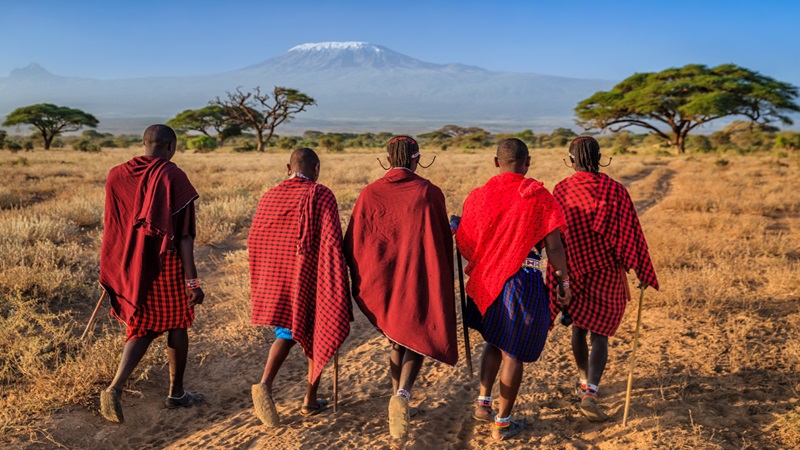Johannesburg as a major city in South Africa has been experiencing rapid urbanization and high population growth. The environment and air quality in cities and neighboring suburbs or township are increasingly degrading due to urbanization. The problem that can be identified is that densification of cities often ignores the need for greenery or greenspaces, prioritizing buildings and motor vehicles.
Climate change is a global challenge with localized consequences, and Southeast Asia is among the most vulnerable regions.
In Malawi, the vulnerability of rain-fed agriculture to irregular rainfall patterns has recently been worsened by the limited capacity of smallholder farmers to cope with the drastic rising costs of fertilizer.
Across Europe, urban centers face mounting pressure to reduce emissions, conserve energy, and address climate change's sweeping impacts.
Forging a novel path, one that goes beyond conventional paradigms lies at the heart of channeling financial resources to bolster climate change adaptation and mitigation endeavors within developing countries.
More than 20% of Africa’s population is undernourished. Given the rising population growth rates and poverty levels, food availability remains a critical concern in Africa.
As we navigate the 21st century, the urgency to address climate change has reached an unprecedented level.
In an era of escalating environmental challenges, a shift toward a circular economy has become imperative for global and national sustainability.
A lot of climate change coverage and advocacy in defense of Indigenous communities is largely focused on other parts of the world such as the Amazonian and Andean communities yet little attention is given to African indigenous communities.
The forests of Africa are invaluable reservoirs of biodiversity, supporting numerous plant and animal species and playing an essential role in regulating the global climate.
The 29th session of the Conference of the Parties (COP29) to the United Nations Framework Convention on Climate Change (UNFCCC) marks a critical juncture in the global response to the escalating climate crisis.
With record-high global temperatures scorching our planet, the urgency for decisive climate action has never been greater. This month, world leaders, business titans, and civil society representatives will gather in Baku, Azerbaijan, for the 29th Conference of the Parties (COP29) under the UN Framework Convention on Climate Change.















 English
English العربية
العربية Български
Български 简体中文
简体中文 繁體中文
繁體中文 Hrvatski
Hrvatski Čeština
Čeština Dansk
Dansk Nederlands
Nederlands Suomi
Suomi Français
Français Deutsch
Deutsch Ελληνικά
Ελληνικά हिन्दी
हिन्दी Italiano
Italiano 日本語
日本語 한국어
한국어 Norsk bokmål
Norsk bokmål Polski
Polski Português
Português Română
Română Русский
Русский Español
Español Svenska
Svenska Català
Català Filipino
Filipino עִבְרִית
עִבְרִית Bahasa Indonesia
Bahasa Indonesia Latviešu valoda
Latviešu valoda Lietuvių kalba
Lietuvių kalba Српски језик
Српски језик Slovenčina
Slovenčina Slovenščina
Slovenščina Українська
Українська Tiếng Việt
Tiếng Việt Shqip
Shqip Eesti
Eesti Galego
Galego Magyar
Magyar Maltese
Maltese ไทย
ไทย Türkçe
Türkçe فارسی
فارسی Afrikaans
Afrikaans Bahasa Melayu
Bahasa Melayu Kiswahili
Kiswahili Gaeilge
Gaeilge Cymraeg
Cymraeg Беларуская мова
Беларуская мова Íslenska
Íslenska Македонски јазик
Македонски јазик יידיש
יידיש Հայերեն
Հայերեն Azərbaycan dili
Azərbaycan dili Euskara
Euskara ქართული
ქართული Kreyol ayisyen
Kreyol ayisyen اردو
اردو বাংলা
বাংলা Bosanski
Bosanski Cebuano
Cebuano Esperanto
Esperanto ગુજરાતી
ગુજરાતી Harshen Hausa
Harshen Hausa Hmong
Hmong Igbo
Igbo Basa Jawa
Basa Jawa ಕನ್ನಡ
ಕನ್ನಡ ភាសាខ្មែរ
ភាសាខ្មែរ ພາສາລາວ
ພາສາລາວ Latin
Latin Te Reo Māori
Te Reo Māori मराठी
मराठी Монгол
Монгол नेपाली
नेपाली ਪੰਜਾਬੀ
ਪੰਜਾਬੀ Afsoomaali
Afsoomaali தமிழ்
தமிழ் తెలుగు
తెలుగు Yorùbá
Yorùbá Zulu
Zulu ဗမာစာ
ဗမာစာ Chichewa
Chichewa Қазақ тілі
Қазақ тілі Malagasy
Malagasy മലയാളം
മലയാളം සිංහල
සිංහල Sesotho
Sesotho Basa Sunda
Basa Sunda Тоҷикӣ
Тоҷикӣ O‘zbekcha
O‘zbekcha አማርኛ
አማርኛ Corsu
Corsu Ōlelo Hawaiʻi
Ōlelo Hawaiʻi كوردی
كوردی Кыргызча
Кыргызча Lëtzebuergesch
Lëtzebuergesch پښتو
پښتو Samoan
Samoan Gàidhlig
Gàidhlig Shona
Shona سنڌي
سنڌي Frysk
Frysk isiXhosa
isiXhosa